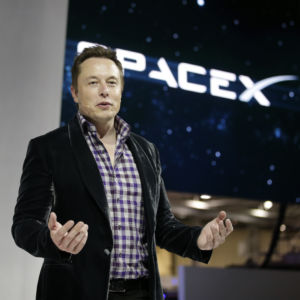Give yourselves a round of applause, taxpayers.
For the first time since 2017, there is a new “richest man in the world,” and you played a significant role in helping him get there. The guy he passed? You played a significant role in his success as well.
Elon Musk became the world’s richest person weeks ago when his car company Tesla achieved a $700 billion market value — more than Toyota, Volkswagen, Hyundai, GM, and Ford combined.
Tesla’s stock price rose as investors moved to seemingly take advantage of the incoming Biden administration’s plans to emphasize electric cars as part of its environmental policy.
The stock price increase raised Musk’s total wealth to $185 billion, propelling him past Jeff Bezos, the owner of Amazon and The Washington Post, whose net worth is now $182 billion.
Unfortunately, Musk has built much of his empire on the backs of American taxpayers.
In 2015, The Los Angeles Times estimated Musk had received $4.9 billion in benefits for his companies — Tesla, SolarCity, and SpaceX. These included government incentives, such as grants, tax breaks, factory construction, discounted loans, and environmental credits that Tesla can sell — as well as tax credits and rebates to buyers of solar panels and electric cars.
When the Los Angeles Times reported its story, neither Tesla nor SolarCity had ever posted a profitable quarter, and Musk was into the firms for $10 billion. But Musk got the state of New York to spend $750 million to build a solar panel factory in Buffalo. It not only rented the facility to Musk for $1 per year, but it also waived property taxes for a decade — a $260 million savings for SolarCity with no such reduction in theft for average New York state taxpayers.
Federal grants and tax credits cover 30 percent of the cost of installing solar energy, and the Treasury Department had sweetened the deal with nearly $500 million in direct grants, the paper reported in 2015.
That’s not to mention the $1.3 billion in incentives Nevada provided to lure Musk to build a battery factory near Reno. Or the $517 million it had collected to that point selling its environmental credits. The government offers incentives to auto companies based on how many electric cars they sell. Since that’s all Tesla sells, it gets far more in these credits than any other car company and sells its excess to companies whose sales of electric cars fall short of government targets.
It’s not just that Musk has received a lot of government subsidies — he is in businesses, by design some say, where government largesse is most prevalent. It’s that none of his three big companies could survive without extensive government help.
Those who buy a Tesla receive a $7,500 tax credit from the federal government. Some states, such as California, kick in even more. Last month, the government announced its plans to give SpaceX over $800 million, one of the most extensive subsidies ever provided by the Federal Communications Commission, to build out broadband in rural areas. The technology it plans to use, which relies on nearly 1,000 satellites circling the Earth at more than 17,000 miles per hour, is in the testing stage — not even operational.
With all this in mind, it was especially remarkable what Musk said about whether he supported additional federal stimulus of the economy to address the economic damage from COVID-19 reactions.
“Another government stimulus package is not in the best interests of the people imo,” Musk tweeted. “These are jammed to gills with special interest earmarks.”
Earmarks for me but not for thee. Yet, Musk is consistent — he consistently supports subsidies for the firms he owns, and they have made him rich beyond all comprehension.
Is this really how one has to become the world’s richest man in the freest country on Earth?
Elon Musk has good ideas. Great ideas. Crazy ideas. If they’re good enough, the free market will reward him for making them happen. He shouldn’t need funds drawn from our wallets by coercion.
Thankfully, some members of Congress are speaking up. For example, seemingly in response to the nearly $1 billion in subsidies Musk is asking for his SpaceX broadband project, over 150 federal representatives recently wrote to the FCC, imploring the Commission “to thoroughly vet the winning bidders to ensure that they are capable” and to “consider opportunities for public input on the applications.”
Here’s hoping that these members manage to put an end to this egregious example of rent-seeking and crony capitalism. It’s gone on for long enough.

